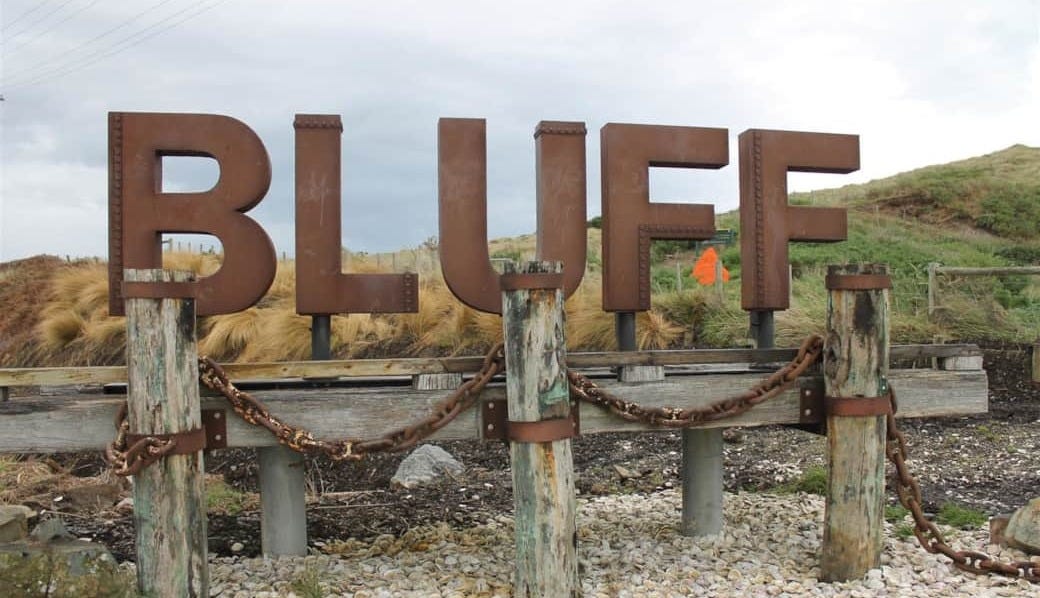The council tension attached to a town's wastewater
“The whole thing is an episode of financial recklessness, and the ratepayers can count on it being an election issue in October 2025."

Talk of the Bluff wastewater consent process - as important as it is - would traditionally pass by with little public interest.
The topic isn’t all that sexy in the scheme of things - if we are going to be brutally honest.
There is a risk of readers eyes glazing over a little when we delve into the technicalities of it.
But Mayor Nobby Clark says the Bluff wastewater consent situation has provided the council with its toughest decision of the term.
It’s also generated tension around the council table - and with some council partners as well.
Councillor Ian Pottinger has now gone as far as declaring that he will make it an election issue come October next year - given his angst at what unfolded at a meeting on Tuesday.
On Tuesday, councillors voted to proceed with pushing for a short-term status quo Bluff wastewater consent extension of two years.
That goes against the wishes of the Bluff Community Board, Awarua Rūnaka, and Te Ao Mārama.
They all want to get on with introducing a new wetland area as part of the discharge process of wastewater to the sea.
There are cultural reasons attached to that, but they also believe it will provide environmental improvements.
Not everyone has been convinced with that suggestion though. Mayor Clark included.
The short-term consent extension - under current conditions - in effect will buy some time for the council to wait for a better understanding of expected legislation changes that are tipped to come next year.
But a fired up Pottinger has spoken out publicly following Tuesday’s meeting labelling the council’s decision for a short-term approach as “financial recklessness”.
“The whole thing is an episode of financial recklessness, and the ratepayers can count on it being an election issue in October 2025,” Pottinger told The Tribune.
That comment comes despite Mayor Clark saying the reason he wanted to wait for potential legislation changes was to also look for the best financial outcome for the ratepayer.
Clark’s stance throughout the process has pretty well centred on pushing for the status quo to remain to avoid the additional wetland cost.
You can see why the issue is a confusing one - or it at least appears to be.
“I support [the status quo option], and I do that because we’ve had advice earlier this week that we face 8.5% rate increases for the next year, potentially being even higher than that - and the Government has made many overturns about councils keeping a lid on rates much closer to the inflation rate, which 2.2% at the moment,” Mayor Clark said.
“So, I can’t justify any expenditure anywhere at the moment… Certainly the feedback I get from people I meet in the community is if we continue to push rates around 8, 9, 10 percent we lose sight of the harm that it is doing in the community.”
Enter your email address to get each Southland Tribune edition sent to your inbox.
Councillors were provided three options by staff, in regard to the Bluff wastewater process:
1. Proceed with a consent application that would include the introduction of a new naturalistic wetland area.
2. Apply for a new short-term consent and continue to operate under the current discharge conditions for four years. (The council ended up opting to cut it to two years).
3. Or not proceed with a consenting process at this time.
The short-term approach was eventually backed by the majority of elected members - Clark, Tom Campbell, Alex Crackett, Grant Dermody, Steve Broad, Trish Boyle, Barry Stewart, and Alan Arnold.
Pottinger, Darren Ludlow, Lesley Soper, and Ria Bond wanted to push on with a longer-term consent which would have included the introduction of the wetland.
“The are upsides and downsides and the downsides are huge,” Pottinger said in relation to his suggestions the short-term status quo decision was “financial recklessness” from the council.
He believed the council should have opted for the longer-term consent application to provide the council with some financial certainty.
“It could end up being $20m, it could be $10m, it could be astronomical. We budgeted $7.7m [in the long-term plan] and we could do a 25-year consent for $6.5m.
“I call that being prudent. What they are doing is rolling the dice.”
At the meeting, Cr Dermody - who is also the infrastructure committee chair - said the council had been left with a challenging decision for various reasons.
He said there were three key factors that needed to be taken into account. They included improving the environmental outcome, how best to ensure it is affordable, and to make sure any legal risks are limited.
He was comfortable they would be within the legal framework with either the short-term status quo approach, or pushing for the longer-term wetland option.
“However, I’m very hesitate to commit to a spend of $6m capital, and $15m in total through the life of the project, with the level of uncertainty we face, with where we are going to land,” Dermody said, while he declared his support for the shorter-term status quo approach.
Although Cr Ludlow talked about not relying on any indications of what might or might not happen through the legislation process.
“A good decision is based on what is known. We do know there are changes likely, we don’t know what they specifically are, what the impacts are, or when they will actually take effect from.”
The experienced councillor said applying for the longer-term consent option did still provide flexibility to alter what is proposed between when the council lodges the application and when it gets to the point of the hearing. Based on whatever becomes known around the legislation.
That statement however did not sway enough other councillors to side with his view.
If you’ve made it this far in the article, give yourself a pat on the back. You might be in a select few given the subject matter, but anyone that spends the time to delve deep into the region’s civic matters is a treasure.
Well done.







The Wetland is the only option for the future of Bluff. A compromise on the best option which would be a land-based treatment - but the shallow soils / depth to extremely hard granite doesn't make that possible.